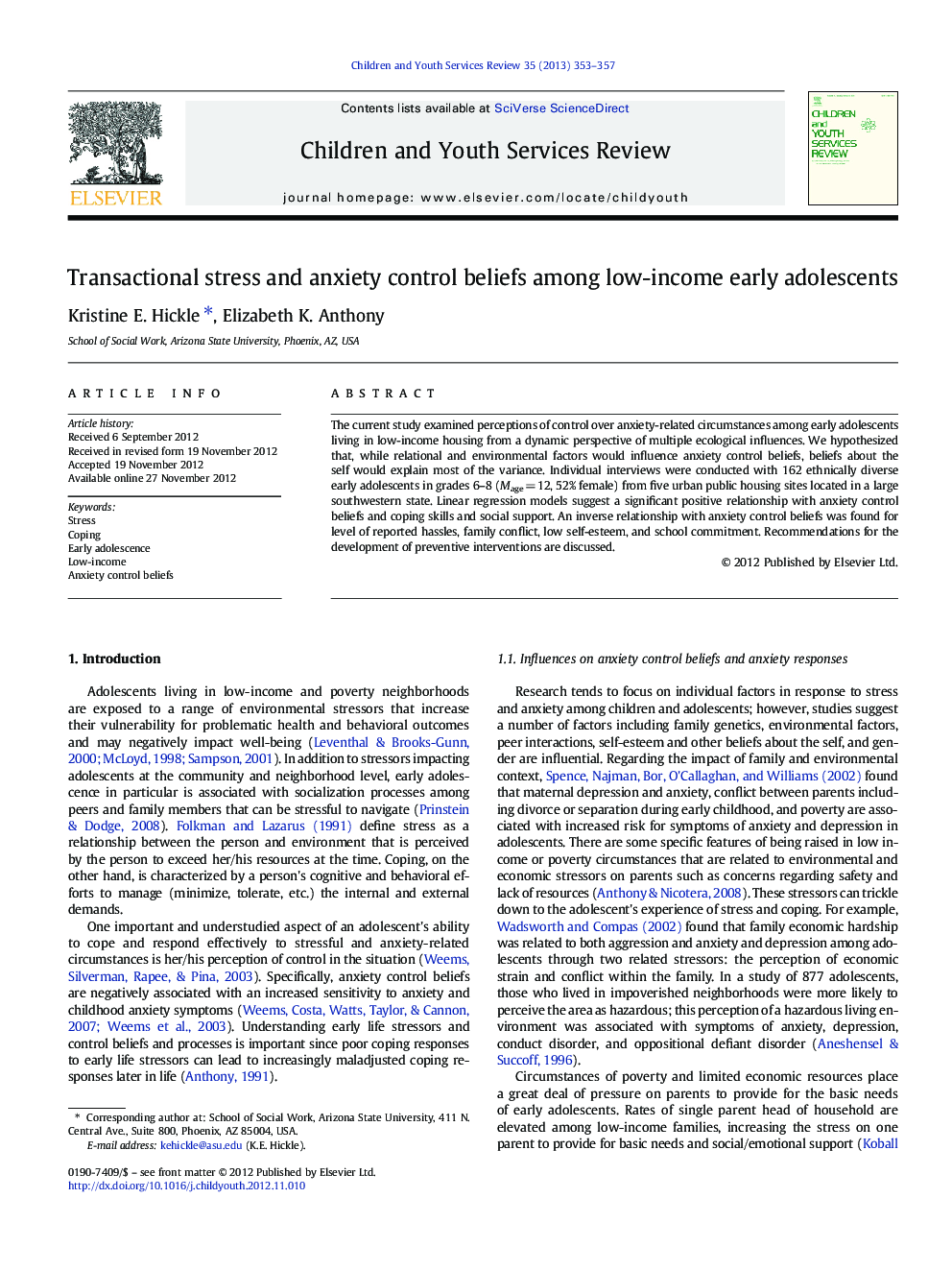| Article ID | Journal | Published Year | Pages | File Type |
|---|---|---|---|---|
| 346444 | Children and Youth Services Review | 2013 | 5 Pages |
The current study examined perceptions of control over anxiety-related circumstances among early adolescents living in low-income housing from a dynamic perspective of multiple ecological influences. We hypothesized that, while relational and environmental factors would influence anxiety control beliefs, beliefs about the self would explain most of the variance. Individual interviews were conducted with 162 ethnically diverse early adolescents in grades 6–8 (Mage = 12, 52% female) from five urban public housing sites located in a large southwestern state. Linear regression models suggest a significant positive relationship with anxiety control beliefs and coping skills and social support. An inverse relationship with anxiety control beliefs was found for level of reported hassles, family conflict, low self-esteem, and school commitment. Recommendations for the development of preventive interventions are discussed.
► We model perceptions of anxiety control from a transactional stress perspective. ► Social support and coping are positively associated with anxiety control beliefs. ► Low self-esteem is negatively associated with anxiety control beliefs. ► Commitment to school is negatively associated with anxiety control beliefs. ► Individual, relational, and environmental influences are important for prevention.
